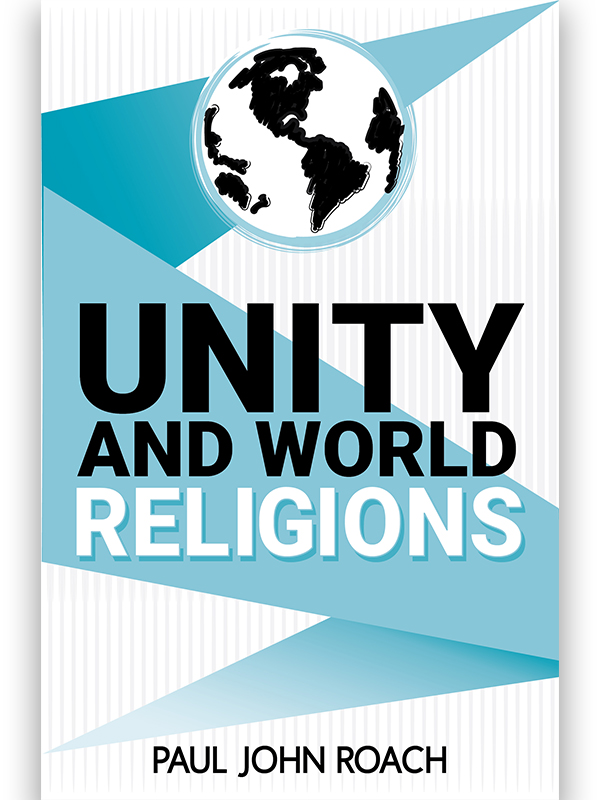In contemplating the edifice of human belief systems, one is often compelled to ponder: can disparate religions glean commonalities that bind rather than bifurcate? The Bahá’í teachings uniquely posit that the united essence of all major world religions is a keystone for humanity’s collective advancement. This exploration embarks upon a salient disquisition on the notion of the unity of religions, whilst simultaneously challenging our perceptions of difference versus commonality in belief.
At the heart of Bahá’í doctrine rests the affirmative assertion that all religions, at their zenith, stem from a singular divine source. This concept, referred to as “Progressive Revelation,” articulates the belief that God, in His infinite wisdom, has dispatched Messengers throughout the ages—such as Abraham, Moses, Jesus, Muhammad, and Bahá’u’lláh—to deliver teachings commensurate with the evolving needs of humanity. Each Messenger’s revelation serves as a chapter in an extensive script of spiritual guidance. Herein, a pivotal question arises: How might such an understanding transform our interpersonal dynamics and elevate discourse around faith?
To elucidate the above, we delve into the characteristic tenets of Bahá’í teachings regarding the Unity of Religion. The first principle underscores the fundamental purpose of all major world religions: to promote love, peace, and harmony among humanity. The Bahá’í Faith asserts that while doctrinal variations exist, the core moral imperatives — compassion, justice, and humility — remain wholly intact across the spectrum of belief systems. Hence, adherents are called to recognize the ethical substratum underlying all spiritual teachings.
An exploration of the phenomenon of religious fragmentation reveals that societal schisms often derive from misinterpretations and misunderstandings between faiths. The Bahá’í teachings advocate for an educational paradigm that emphasizes the shared values inherent within religious texts. For instance, the Golden Rule, “Do unto others as you would have them do unto you,” resonates across diverse religions, from Christianity to Buddhism. Such axioms engender empathy and can serve as foundational pillars for fostering interfaith dialogue.
A particularly compelling illustration of the unity of religions is the Bahá’í perspective on the prophetic lineage. Each Prophet is viewed as a mirror reflecting progressive truths suited to their specific historical context. This metaphorical lens challenges the exclusivity often embedded within theological frameworks. By understanding religious figures not merely as leaders of isolated communities but as architects of a universal narrative, adherents can begin to appreciate the seamless continuum of divine guidance over the millennia.
Furthermore, the Bahá’í teachings emphasize the importance of a universal language of understanding. This necessity becomes increasingly pertinent as globalization accelerates. The proliferation of communication has rendered it vital for individuals to cultivate a genuine knowledge of other faiths. Engaging with the sacred texts of differing religions, witnessing their beauty and profundity, becomes an act of cultural enrichment rather than a mere academic endeavor. In this discourse, the usage of comparative theology can act as a powerful instrument, magnifying the harmonies while respecting the disparities. Here, we invite a reflective challenge: How might religious literacy evolve to diminish the often-competitive stance many adopt when discussing faith?
A comprehensive analysis of Bahá’í teachings would be remiss without an exploration of how these principles encapsulate concepts of justice and equality. The Bahá’í Faith asserts that an integral facet of true religion is the promotion of social justice, including the eradication of prejudice and discrimination. In every sacred text, there exists a divine imperative to uphold the rights and dignities of every individual. The cultivation of unity among differing religions naturally extends into the realm of societal engagement, demanding an active experimentation with concepts such as racial harmony and gender equity—themes that resonate strongly with the teachings attributed to the Messengers of God.
It is integral to recognize that embracing the notion of unity does not entail a capitulation to uniformity; rather, it calls for the celebration of diversity within the human tapestry. The Bahá’í perspective rejoices in differences as colors in a grand mosaic, whereby each faith contributes unique insights and perspectives. This embrace of multiplicity can lead to a more nuanced understanding of spirituality that transcends dogma, resulting in an enriched collective experience.
To facilitate the realization of this vision, Bahá’í communities worldwide actively engage in initiatives that promote interfaith dialogue. These interactions manifest through conferences, community service projects, and collaborative ventures focused on mutual understanding and cooperation. Such endeavors embody the core tenet that knowledge and goodwill are paramount for achieving a united society. However, herein lies yet another challenge: how should individuals and communities navigate the complexities of interfaith cooperation without diluting their own beliefs?
As we contemplate the essence of Bahá’í teachings regarding the Unity of Religion, it becomes apparent that the overarching narrative dictates a transcendence of tribal affiliations in favor of an inclusive global identity. Each individual’s participation in fostering unity is not merely commendable but imperative. The question thus lingers: in what ways can we, as stewards of our unique spiritual traditions, contribute toward a more harmonious global community? This inquiry, while complex, invites us into a meaningful introspection about our roles in championing the unity of all peoples.
In summary, the Bahá’í teachings on the unity of religions compel us to reevaluate our preconceptions, extend our apprehensions, and dismantle barriers coalescing around our beliefs. The essence of these teachings amplifies the need for a collaborative spirit, beckoning adherents and seekers alike to engage in enriching dialogues and initiatives aimed at elevating humanity. Through understanding, empathy, and action, the invocation of unity in diversity stands poised to illuminate our collective path into the future.
